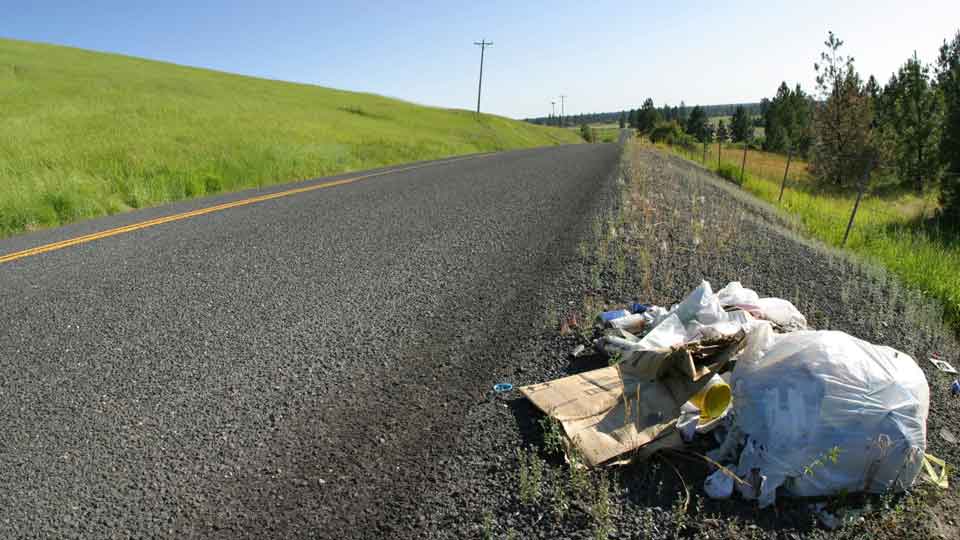Driving Results with Scientific Studies: Keep America Beautiful 2020 National Litter Study
April 28, 2021
By Veronica Roof, Project Manager, Burns & McDonnell and David Scott, Ph.D., Senior Director of Research, Monitoring & Evaluation, Keep America Beautiful

Litter, or mismanaged solid waste, can include food wrappers, fast food packaging, beverage bottles and cans, cigarette butts, masks, gloves, and so much more. Litter negatively impacts humans and our natural environment daily and poses a threat to our future. Litter affects not only quality of life, but environmental, community and individual health, economic development, the circularity of the economy, water safety, community justice, and climate.
The Keep America Beautiful 2020 National Litter Study is the most comprehensive study of litter ever completed in the U.S. Keep America Beautiful (KAB), the nation’s largest community improvement organization fighting litter since 1953, brought on Burns & McDonnell to conduct its 2020 study as a follow up to a landmark 2009 study. The study included four distinct components: a public attitudes survey, a visible litter survey, a behavioral observations survey, and a financial cost of litter survey (which is currently ongoing).
KAB, Burns & McDonnell, and a team of litter research leaders developed a comprehensive scientific methodology documenting the quantity, composition, sources of litter, attitudes toward litter and littering, observations of littering, and an account of the cost of litter across the U.S. Burns & McDonnell incorporated processes and data architecture to replicate the study and maintain consistency across time and geographies.
The Keep America Beautiful 2020 National Litter Study established a valid, national estimate of litter along waterways in the U.S. and insights about the relationship between litter on waterways and roadways. The study showed that although roadway litter is down by more than 54% since 2009, there is slightly more litter along waterways. Other key findings include:
- Approximately 90% of U.S. residents agree litter is a problem in their state.
- An estimated 207 million personal protective equipment items were littered on U.S. roadways and waterways through early fall 2020.
- Of the 50 billion pieces of litter on the ground, 24 billion are along roadways and 26 billion are along waterways.
- There are more than 2,000 pieces of litter per mile.
Though litter is still a looming issue across the U.S., KAB is working to positively change behaviors and prevent litter from occurring.
“Behavior change is at the root of Keep America Beautiful,” said Helen Lowman, Ph.D., Keep America Beautiful president and CEO. “If Americans pick up 152 pieces of litter — and ultimately, stop littering —we can promote that everyone lives in a clean and litter-free community.”
While 50 billion pieces of litter on the ground may sound like a daunting statistic, 152 pieces per U.S. citizen is a manageable number to handle and provides a tangible goal to strive toward. If this goal is achieved, the study estimates the U.S. could be a litter-free nation, assuming all other littering stopped today, and waste was properly managed. KAB continues to engage its affiliates and millions of volunteers across the U.S. to move closer to its goal of eradicating litter.
About the Authors

Veronica Roof
Veronica Roof is a project manager at Burns & McDonnell, specializing in solid waste planning, management, and recycling and resource recovery. She serves as the director of the Communication, Education and Marketing Technical Division for SWANA.

David Scott, Ph.D.
David Scott, Ph.D., is Senior Director of Research, Monitoring & Evaluation for Keep America Beautiful. David oversees research in support of the Keep America Beautiful mission as well as data and evaluation strategies to help understand the impact of the organization and its network of 700 community-based affiliates.







Leave a comment